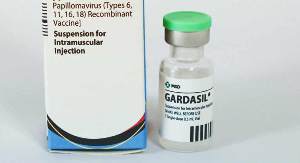Recognizing Vaginal Warts
Vaginal warts or genital warts are sexually transmitted infections (STIs) and are common, particularly in sexually active adolescents and young adults.
Vaginal or vulva warts are fleshy growths found in and around the genitalia and anus.
Initially, the warts are small fleshy growths which could be red, pink or gray-colored. They may appear singly or as clusters which resemble cauliflowers. These cauliflower-shaped lesions can be raised (bumps) or flat. Some warts are so small and flat that they cannot be seen with the naked eye. At other times, these lesions can grow to large clusters very quickly.
The warts are usually found around the vaginal opening (vulva), inside the vagina, between the vagina and anus and around the anus. Women are usually unaware of warts inside the vagina and cervix until their routine Pap test shows abnormal results.
Vaginal Warts Causes And Transmission
Vaginal or genital warts is caused by the human papillomavirus (HPV). There are more than 40 strains of HPV that specifically affects the genital area. Among these HPV types 6 and 11 cause 90% of warts in the genital area. Other high risk HPV types can lead to cervical cancer.
HPV spreads by skin-to-skin contact during vaginal or anal intercourse, oral sex or by the sharing of sex toys.
In order to survive, HPV infects epithelial cells found on the skin and the lining of body cavities, i.e. vagina, anus and mouth. Once inside a cell, it make replicas of it and infect other healthy cells.
The infected cells eventually die and are shed from the body with other dead cells. When the virus is shed, it can infect another person.
Vaginal Warts Symptoms
Vaginal warts symptoms usually appear two to three months after infection (incubation period), although there are cases of incubation periods of up to a year.
Mild cases of genital warts are usually painless but severe cases can inflict extreme pain. External symptoms include:-
- Discomfort, itchiness and irritation, around the vulva and anus.
- Abnormal vaginal discharge.
- Abnormal vaginal bleeding during or after sexual intercourse.
- Excessive moisture in the warts growth area.
The first 3 symptoms could be mistaken for symptoms of a vaginal infection, so it is important to see a doctor for a proper diagnosis.
Treating HPV
No cure has yet been developed to cure genital warts, but visible warts can be treated by:-
- Topical treatment i.e. direct application of medicine on the warts by a medical professional.
- Physical ablation i.e. destruction of the warts by excision, electro-surgery, cryotherapy and laser surgery.
It is best to abstain from sexual intercourse until treatment has been completed.
Vaginal Warts Prevention
The best prevention is to have one sexual partner, who in turn, has no other sexual partner. The more partners there are, the higher the risk of infection.
Condom (male and female) should be used on every sexual encounter. Whether it is vaginal or anal sex, condoms is an effective method of not only preventing the spread of HPV but other STDs as well, such as chlamydia, gonorrhea, vaginal herpes and HIV/AIDS.
The sharing of sex toys should be avoided. If there is sharing, they should be washed and covered with a condom before being used again.
Vaginal Warts Vaccines

There are two types of vaccines -Gardasil and
Cervarix are available for protection
against HPV.
Gardasil is a vaccine which gives protection against 4 types of HPV-namely HPV types 6,11, 16 and 18). It is administered to males and females from ages 9-26. In young women it helps to protect against cervical cancer, vaginal and vulva cancer.
For boys and young men it gives protection against 90% of genital warts cases.
Cervarix is a vaccine for girls and young women ages from 9 to 25. It helps to prevent HPV types 16 and 18 which cause 70% of cervical cancer cases.
Not all HPV infections may lead to cervical cancer but chances of getting cervical and vagina cancers increases with the presence of warts in the vagina.
Do not delay going for a medical check up if you have the symptoms
mentioned above. You should go for a pap smear test yearly too.
- Home
- Vaginal Infection
- Sexually Transmitted Infections
- Vaginal Warts


Facebook Comments
Thanks for visiting. Have your say on what you just read? Leave a comment in the box below!